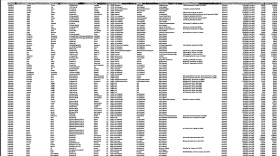Voters at town meetings across New Hampshire approved resolutions urging state lawmakers to join a nationwide effort to overturn Citizens United, the U.S. Supreme Court decision that struck down limits on political spending by corporations, labor unions and special interest groups.
As of Wednesday afternoon, 28 towns had approved petition warrants supporting campaign finance reform, including Exeter, Amherst, Salem, Deerfield, Hudson, Rindge and Windham.
In most cases, the resolutions passed with solid majorities, some as large as 3 to 1. In Exeter, for instance, the vote was 1,529-527. In Hampstead, it was 1,098-391. Rindge voters approved the resolution by 1001-403 margin.
Six towns – Hampton, Londonderry, Madbury, Lancaster, Grafton and Orford – had rejected the measure, which calls on Congress to support a constitutional amendment to end corporate personhood.
Olivia Zink, of the Coalition for Open Democracy, a Concord nonprofit that supports public financing of elections, says a total of 61 communities have resolutions that support reducing corporate influence on elections on town meeting ballots in 2014.
“Last year Conway was one of the first communities in New Hampshire to pass a petition warrant, and there’s been a big push this year to get more of them on the ballot,” says Zink, who helped recruit and train community activists involved in the local petition drives.
Sixteen states, the District of Columbia and more than 500 local governments – including Newmarket, N.H. - have passed similar resolutions since January 2010.
That’s when the Supreme Court’s ruling in Citizen’s United v. Federal Election Commission extended First Amendment rights to corporations and unions, opening the door to unlimited spending by groups that operate independently of candidates and political parties.
Last year, the New Hampshire House passed a resolution urging the state’s congressional delegation to support a constitutional amendment to overturn Citizens United. It failed to get a vote in the Senate.
A bill introduced in the state Senate this year would establish a committee to review constitutional amendments to reform campaign finance rules and make a recommendation to the New Hampshire delegation on which ones, if any, to support.
According to the Sunlight Foundation, of the $7 billion spent during the 2012 election cycle, an estimated $2 billion so-called independent expenditures came from outside groups.
In New Hampshire, outside groups poured $19 million into the New Hampshire governor’s race, compared to about $4 million in spending by the candidates themselves.
Polls show significant public support for overturning Citizen United. A 2012 survey of 1,000 likely voters found 62 percent oppose the Supreme Court's decision and 55 percent do not believe that corporations should have the same rights as people.
Zink says this year's town meeting results show New Hampshire residents support a constitutional amendment.
"Money is not speech, and corporations are not people,” she said. "The Supreme Court has ruled otherwise, so we need to make the wording of the Constitution clear.”







